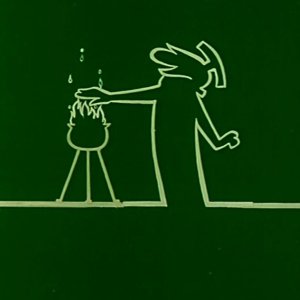This review may contain spoilers
Most of us who have already passed the age of fourty will probably concur that this age does feel like a threshold. Whether your kids are starting to leave home (or will do so soon) or your parents start to need your help (or pass away even) -- suddenly, you notice that you are no longer young and chances are that the years ahead will be fewer than the years already behind.
Add to that the comfortable days you are living -- you finally settled into your job and know your role, days have a predictable routine. You think you know yourself, what you want and what you fear.
Youth seems like a dim memory, something you are no longer allowed to have.
But Kozue is lucky. He gets a Togawa, and is able to rediscover his own self, and find new passion for life (and for love). This story is told concisely, never rushed. No scene, no line of dialogue, no gesture is unecessary. Both leads and the supporting actors act with precision.
Browns and greys, shades and dim lighting are contrasted with bright spring greens and the lovely crisp spring sun -- Colours, light and shadows play an important role in this drama, if you care to look for it.
Follow the colour, the sets, the acting, which gets increasingly tight, tense and even oppressive -- the tension rises, until Togawa reaches his breaking point -- and it seems as if things are broken. Everything is grey and brownish again, but changed. Spots of light and colour show how Nozue's life has already changed -- but wouldn't it be brighter and livelier with Togawa in it?
Even after watching this lovely series more than a few times, I haven't found anything that I don't like -- it's that excellent!
Add to that the comfortable days you are living -- you finally settled into your job and know your role, days have a predictable routine. You think you know yourself, what you want and what you fear.
Youth seems like a dim memory, something you are no longer allowed to have.
But Kozue is lucky. He gets a Togawa, and is able to rediscover his own self, and find new passion for life (and for love). This story is told concisely, never rushed. No scene, no line of dialogue, no gesture is unecessary. Both leads and the supporting actors act with precision.
Browns and greys, shades and dim lighting are contrasted with bright spring greens and the lovely crisp spring sun -- Colours, light and shadows play an important role in this drama, if you care to look for it.
Follow the colour, the sets, the acting, which gets increasingly tight, tense and even oppressive -- the tension rises, until Togawa reaches his breaking point -- and it seems as if things are broken. Everything is grey and brownish again, but changed. Spots of light and colour show how Nozue's life has already changed -- but wouldn't it be brighter and livelier with Togawa in it?
Even after watching this lovely series more than a few times, I haven't found anything that I don't like -- it's that excellent!
Was this review helpful to you?


 2
2











